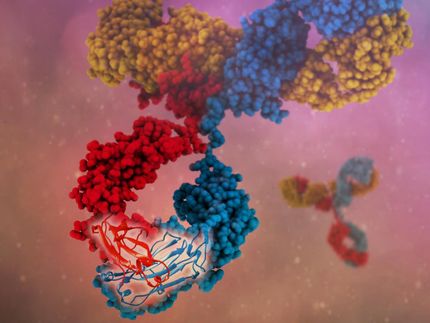BMBF PeTrA Project to make administration of biopharmaceuticals more tolerable for patients
Advertisement
The goal of the interdisciplinary research project PeTrA*, which is sponsored by the German Ministry for Education and Research (BMBF), is supersede the need for injections for biopharmaceuticals used e.g. in cancer immunotherapy by developing spray and tablet formulations which include innovative biofunctional polymers. The project is designed to simplify the administration of biopharmaceuticals and to improve their bioavailability. PeTrA is managed by a consortium consisting of Evonik Industries AG, Merck KGaA, EMC microcollections GmbH, a high-tech company for peptide and peptidomimetics synthesis, the Helmholtz Center for Infection Research (HZI), and the Fraunhofer Institute for Interfacial Engineering and Biotechnology (IGB).
The project, which started on July 1, 2011, is scheduled to last for three years. Approximately half of the 6 million Euro budget is supported by the three industry partners. The PeTrA consortium also includes the Friedrich Schiller University in Jena, the Saarland University, the University of Nijmegen (Netherlands), the Bonn University Hospital, the Charité Hospital Berlin, the Kiel University, and the Würzburg University.
Biopharmaceuticals have been on the advance for years in modern drug therapy. They include peptides, proteins and antibodies, nucleic acids and blood components that represent a promising basis for new active principles and for cancer immunotherapy. Many of these highly successful drugs improve patient life quality and have enormous technological potential for the pharmaceutical industry.
Today, biopharmaceuticals are mostly administered by injection. Indeed, there is no efficient or broadly applicable system for administering them via the mouth (oral) or through the respiratory pathways (inhalation) because they are not easily absorbed by the mucous membranes of the gastrointestinal tract and respiration system, and tend to be degraded in the stomach before they can have an effect on the body. The PeTrA project aims at overcoming these obstacles by packaging highly sensitive biopharmaceuticals into nano- and micro-sized particles that transport the active ingredients through the mucous membranes and protect them from degradation in the stomach.
“Tablets and sprays are more convenient for patients, particularly in long-term therapies which can require continuous drug intake over weeks or months,” says Dr. Rosario Lizio about the motivation of the research partners. Lizio, the PeTrA project coordinator, is also the head of the Discovery & Development department of Pharma Polymers, a product line of the Health Care Business Line of Evonik specialized in drug delivery systems.
“I am convinced that the breadth of expertise represented in the project provides an excellent basis for the development of novel drug delivery technologies for biopharmaceuticals.” says Lizio. “The team composition combines leading competencies in the design of pharmaceutical functional polymers, formulation of drug release systems as well as innovative models to assess the in-vivo efficacy of these systems. I am delighted to be part of this venture and look forward to contributing Evonik’s expertise in functional pharmaceutical polymer design and formulation” he adds.
*PeTrA stands for “Platform for efficient epithelial transport of pharmaceutical applications with innovative particular carrier systems” and is part of the BMBF grant project “Efficient drug transport in biological systems - BioMatVital: Biotransporters.“
Other news from the department science
Most read news
More news from our other portals
See the theme worlds for related content
Topic world Antibodies
Antibodies are specialized molecules of our immune system that can specifically recognize and neutralize pathogens or foreign substances. Antibody research in biotech and pharma has recognized this natural defense potential and is working intensively to make it therapeutically useful. From monoclonal antibodies used against cancer or autoimmune diseases to antibody-drug conjugates that specifically transport drugs to disease cells - the possibilities are enormous

Topic world Antibodies
Antibodies are specialized molecules of our immune system that can specifically recognize and neutralize pathogens or foreign substances. Antibody research in biotech and pharma has recognized this natural defense potential and is working intensively to make it therapeutically useful. From monoclonal antibodies used against cancer or autoimmune diseases to antibody-drug conjugates that specifically transport drugs to disease cells - the possibilities are enormous
























































